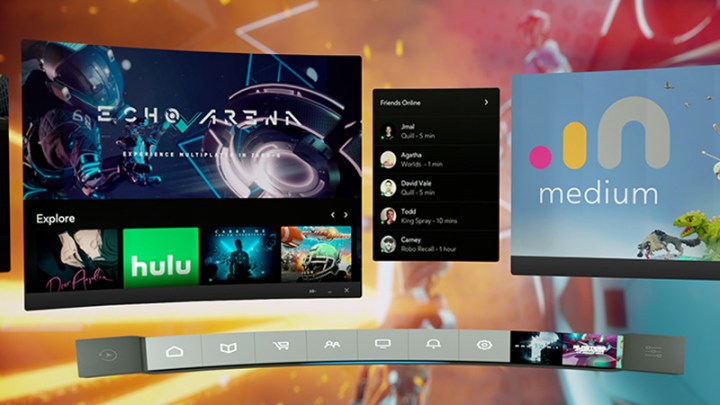
Although Oculus initially made the Rift Core 2.0 update available through its Public Test Channel in December, with some additional tweaks brought to bear, it’s now made it accessible to all Rift users. While Oculus Home will still be the default setting for those stepping into Oculus’ virtual world, users can now easily enable the new update through the settings menu, according to RoadToVR.
For first time users who haven’t tried out Rift Core 2.0 yet, they can expect some nice performance upgrades and a newly customizable Home space that lets you tweak your VR surroundings as you see fit. It also introduced Dash, a new in-app menu that makes it easier to run applications and change apps (including SteamVR games) while within VR. Beyond that though, this January update fixes a few niggling issues brought to light by beta testers over the past few weeks.
‘Locking’ items in the Home space will now be possible, meaning users won’t knock their finely placed objects and VR household items once placed down. The update also makes it easier to access your VR applications from within Home and it now has a more interactive wishlist feature, so when games and VR apps you want go on sale, you can find out about it via VR notifications.
An out-of-VR improvement that has been much requested since the Oculus Rift first went on sale is the installation customization feature. Now users can decide where their VR titles are installed, rather than in a default C: drive location. That should make it easier to install VR apps on specific drives or partitions, for those who prefer to separate out their software.
For those who are concerned about how long they’re spending in VR, or want to brag about the number of hours, each Oculus application now has its own playtime tracker, so you can much more easily estimate how far you’ve gone to becoming an entirely virtual entity.
For more information and links to where you can provide your own feedback on the update, check out the Oculus blog post.
Editors' Recommendations
- One year later, my PlayStation VR2 is collecting dust
- We now know how Apple’s VR headset may handle video, and it’s pretty awesome
- PlayStation VR2 will include see-through view and broadcasting options
- These XR gaming glasses just raised more on Kickstarter than the Oculus Rift
- The Kat Walk C2 looks to be the ultimate VR treadmill


